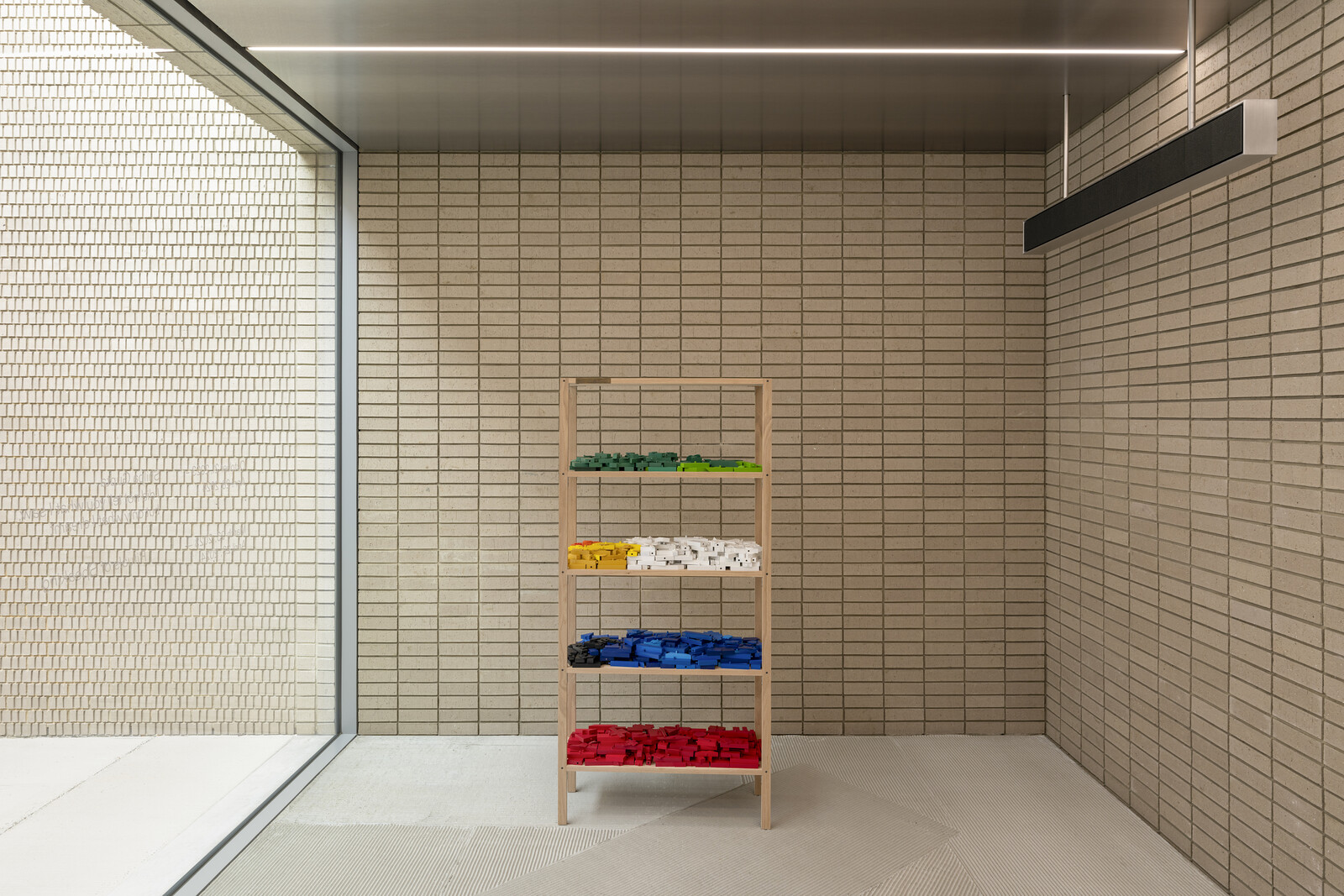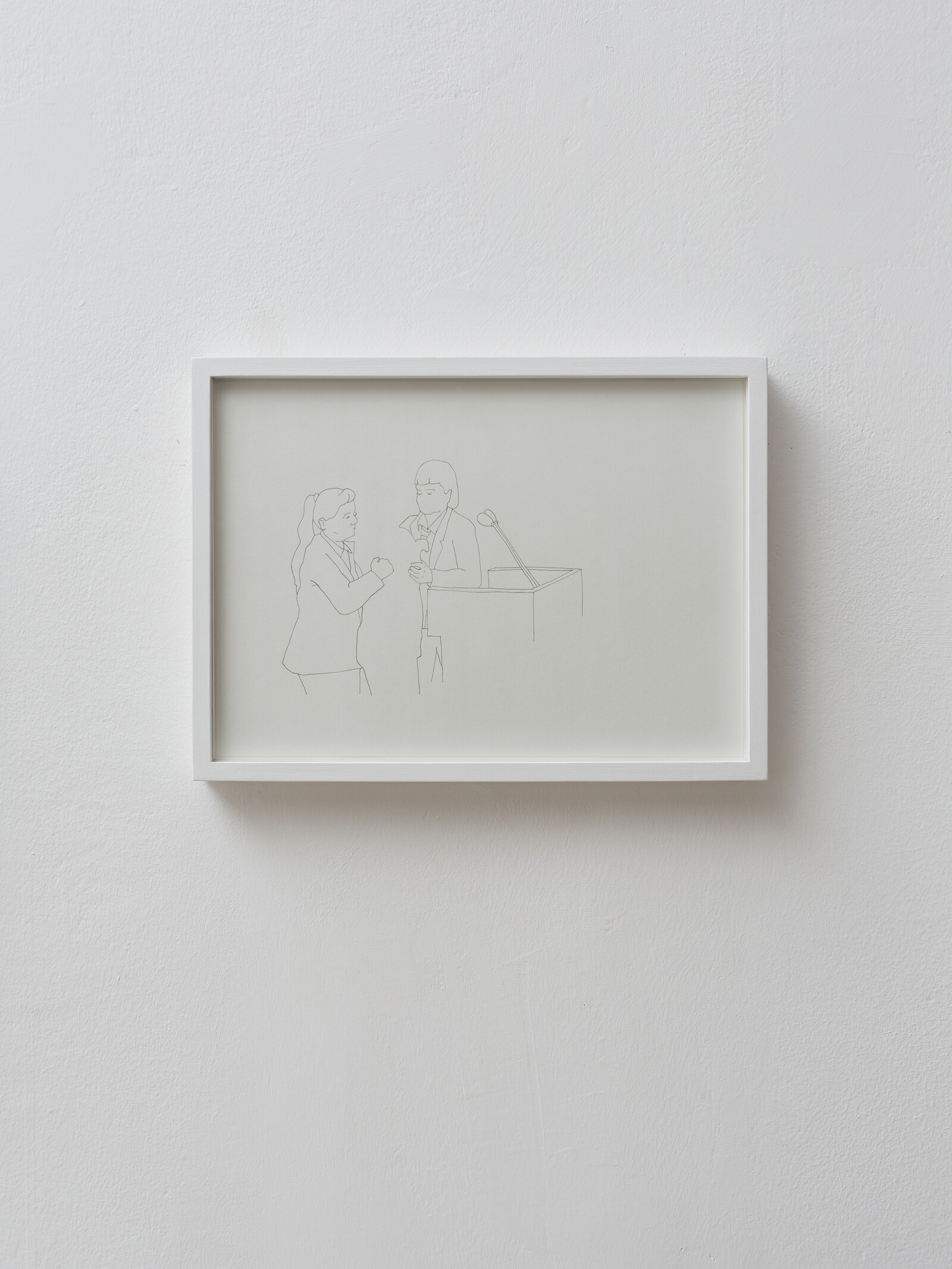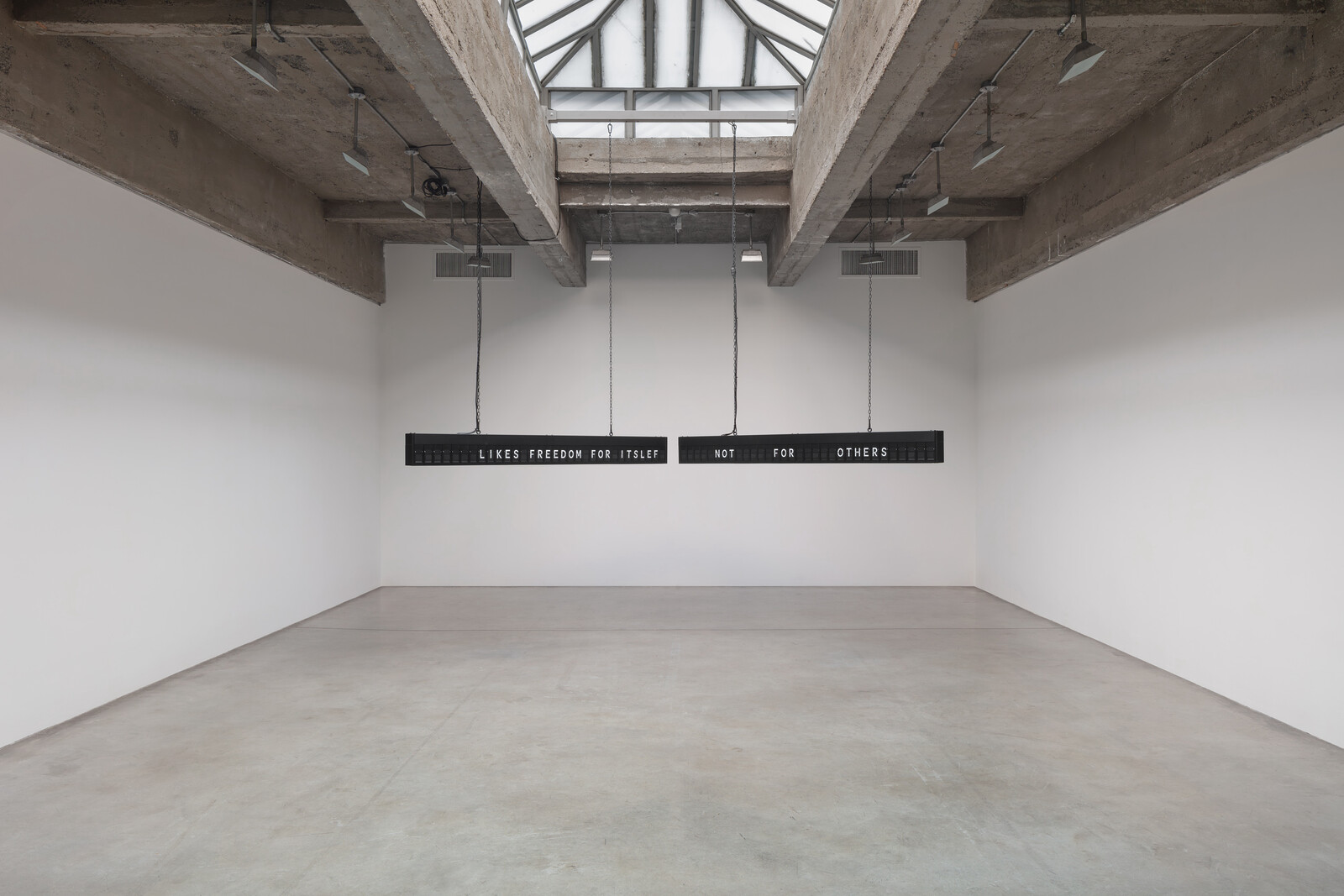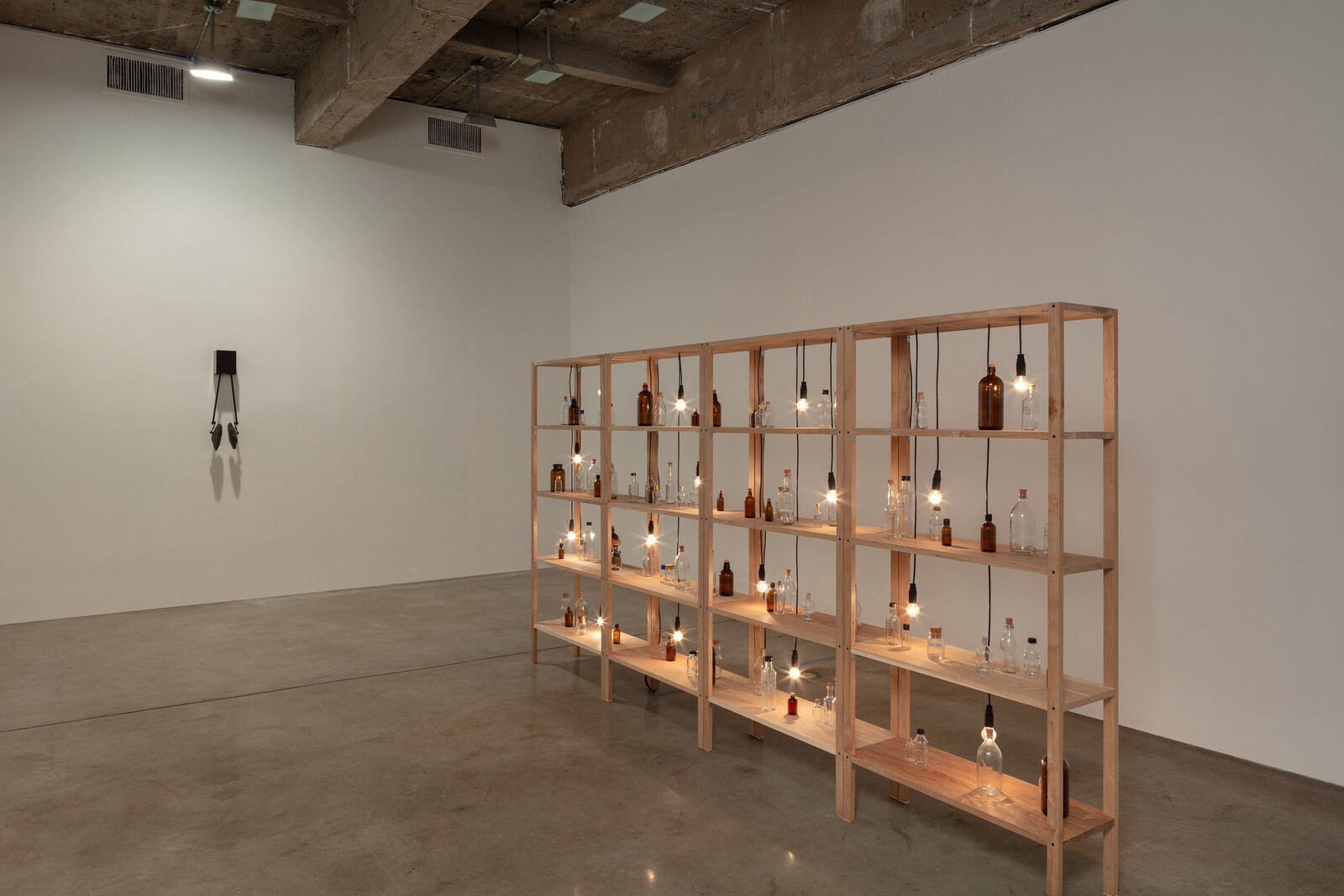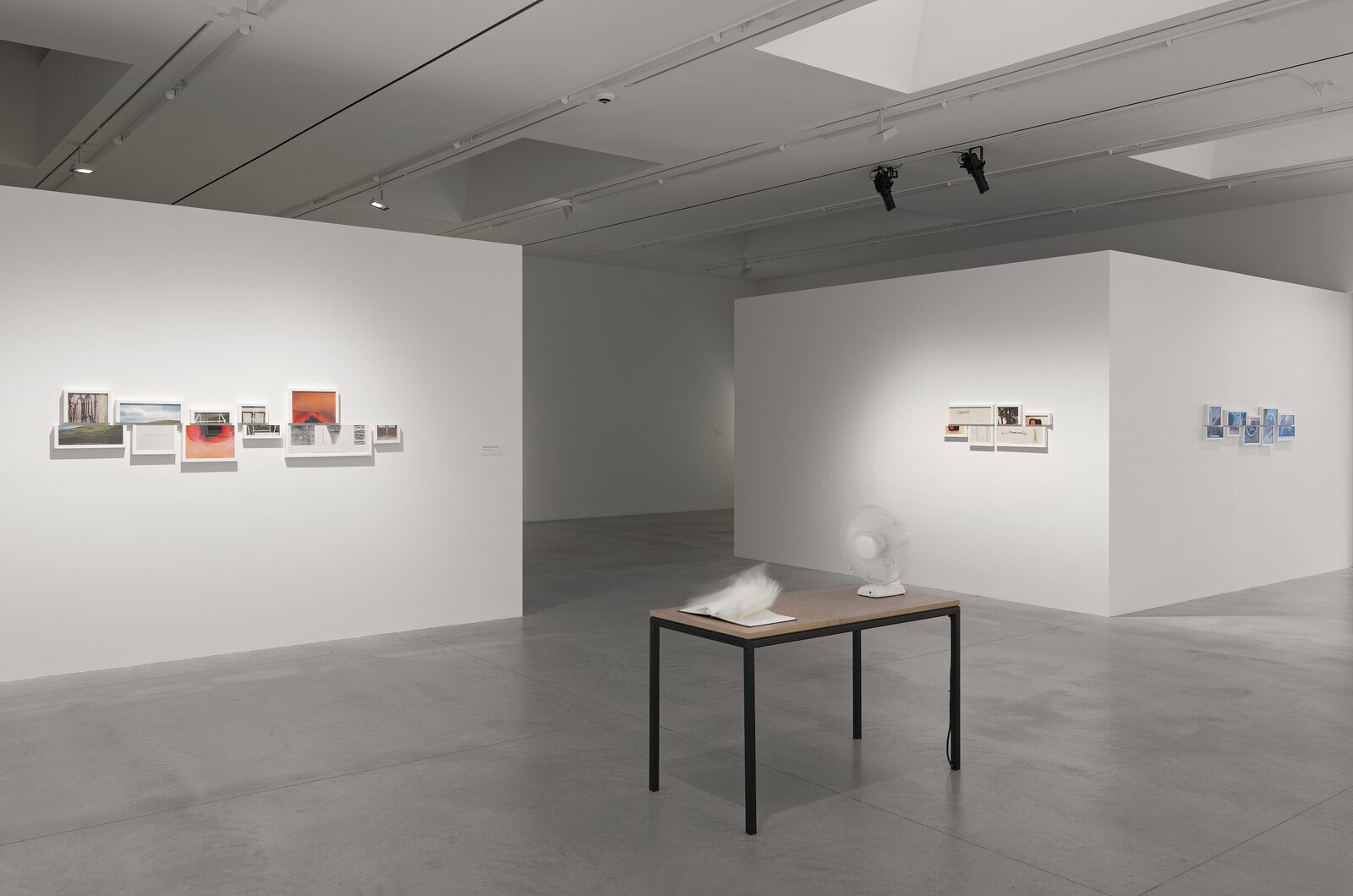Recent New York Times headlines point to American perceptions of India’s increasingly prominent role in global affairs. “Can India Challenge China for Leadership of the ‘Global South’?” “Will This Be the ‘Indian Century’?” “The Illusion of a US-India Partnership.” “US Seeks Closer Ties With India as Tension With China and Russia Builds.” “US Says Indian Official Directed Assassination Plot in New York.” “An Indian Artist Questions Borders and the Limits on Free Speech.”
The last headline refers to Mumbai-based Shilpa Gupta, whose work obliquely explores the emergent global polycrisis (a term popularized by Adam Tooze) in which India plays a central part. Although Gupta’s art is deeply engaged with contemporary political events, it is not headline-driven. It resists didacticism, in part, through being polyvocal, as exemplified in her standout installation Listening Air (2019–23). Defying simple description and rewarding patient immersion, Listening Air consists of multiple microphones-turned-speakers that play songs of labor and resistance from around the world. As the songs fade in and out, listener-viewers in the dimly lit room slowly begin to perceive themselves as members of a temporary community. The effect is ethereal and meditative.
Gupta’s two concurrent New York exhibitions, at Amant and Tanya Bonakdar Gallery, accord a centrality to poetry and song that is neither naïve nor forced. Taken together, the two shows offer a comprehensive survey of Gupta’s work; they echo—and mirror—one other in ways that epitomize an expansive, serial practice.
The title of the Amant show, “I did not tell you what I saw, but only what I dreamt,” is taken from the last lines of Ukrainian poet Taras Shevchenko’s 1845 poem “A Dream.” In a recent interview, Gupta describes how “poets, like writers and artists, are dreamers who speak of the nightmares of the living world. This work is about the persistence of beliefs, of dreams, which make us into what we are as individuals.”1 Her newly commissioned installation at Amant, For, In Your Tongue, I Cannot Fit (2017/23), ingeniously captures the disruptive potential of a form too often considered politically inert in the Anglo-American world. That poets may hold tools to effect social change is suggested, somewhat paradoxically, in their regular suppression and censorship. The newest iteration of a series, For, In Your Tongue, I Cannot Fit consists of 100 books cast in gunmetal that feature quotations by imprisoned poets. The work is more understated than its 2017–18 version (perhaps Gupta’s best-known work) in which fragments of poems are placed on metal spikes. “WITHOUT REVOLUTION THERE CAN BE NO PROPER PEACE,” reads the cover of Siddhicharan Shrestha’s glass-enclosed book sculpture. (For, In Your Tongue, I Cannot Fit is also the title of a compelling 2022 anthology, co-edited by Gupta, of poetry by imprisoned poets.)
Upstairs at Tanya Bonakdar, StillTheyKnowNotWhatIDream (2021) is a wide-ranging poem-in-motion that explores themes of love and fear at the individual and collective levels. Gupta’s flapboard works place viewers in the disoriented position of the traveler who awaits updated directions. Messages dissolve into one another as a long poem appears one half-letter at a time, to mesmerizing effect. Hung as a diptych, “IN LOVE” on the left faces “IS FEAR” on the right, for instance. Intentional misspellings give the work a beguilingly provisional feel. “DON’TSEEDON’TSPE//AKDON’THEAR,” commands the signboard—not long before it reverses course and reassures us, displaying “I LOVE YOU” on the left and “I LOVE YOU TOO” on the right. Channeling Jenny Holzer’s “ABUSE OF POWER COMES AS NO SURPRISE,” the linguistic manipulations undertaken on behalf of the love of power come, indeed, as no surprise.
India’s resurgent nationalism and its border conflicts with Pakistan, Bangladesh, and China are subtly alluded to in works such as 1:7690 (2023), the title of which refers to the length of the border fence being built between India and Bangladesh. A ball made of strips of a garment smuggled from Bangladesh into India, the work literalizes the metaphor of the intertwining of nation states, their citizens, and the non-citizens they exclude. Here, as elsewhere in Gupta’s work, individual intimacy and collective xenophobia collide. In an untitled 2023 work at Amant, the colors of the flags of the world are deconstructed into Jenga-like wooden blocks suitable to be played with by children—subtly pointing to the reductive contradictions of competing nationalist ideals.
One of the less conspicuous works in the Amant show, Untitled (Knesset Drawings) (2016) is especially resonant in its deployment of understatement. Gupta traces images of members of the Israeli Knesset as they are removed from their microphones by ushers. Mainstream US and European political discourse tends to envision Israel as a liberal democracy surrounded by tyrannies: that characterization is simplistic at best, since Israel’s democratic deficiencies are profoundly intertwined with the deficiencies of the international order. The US, as the headlines above indicate, seems more willing than ever to ignore the suppression of free speech on the part of allied nations. Gupta’s fusion of words, objects, and images foregrounds the limits of nationalism. As it probes the limits of what can be said and by whom, her work makes a powerful case against the global ascendancy of authoritarianism.
Shilpa Gupta’s “I did not tell you what I saw, but only what I dreamt” is on view at Amant Gallery through April 28; her eponymous exhibition at Tanya Bonakdar Gallery is on through December 16.
For, In Your Tongue, I Cannot Fit: Encounters with Prison, eds. Shilpa Gupta and Salil Tripathi (Mumbai: Context Books, 2022), xxix.


